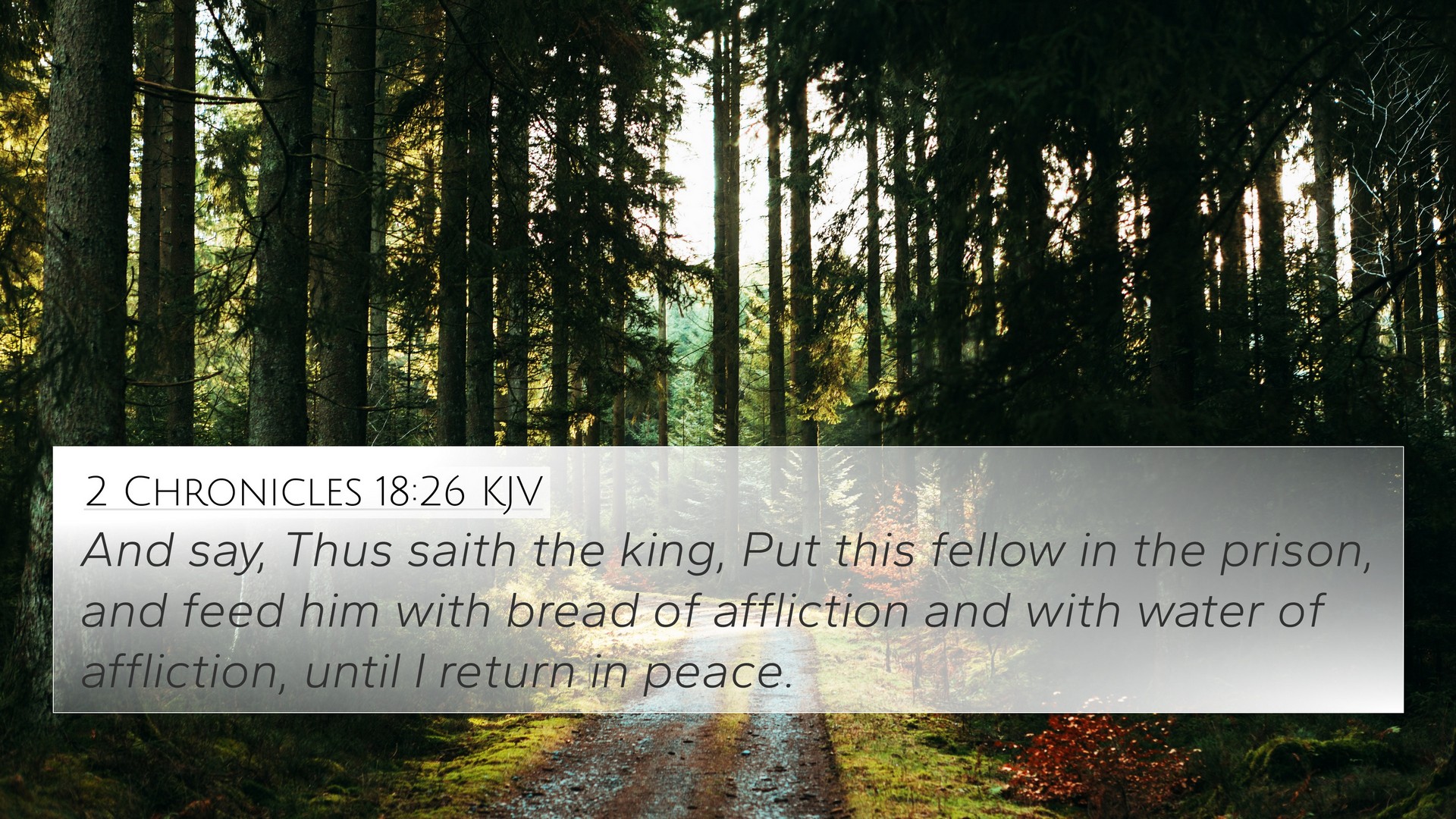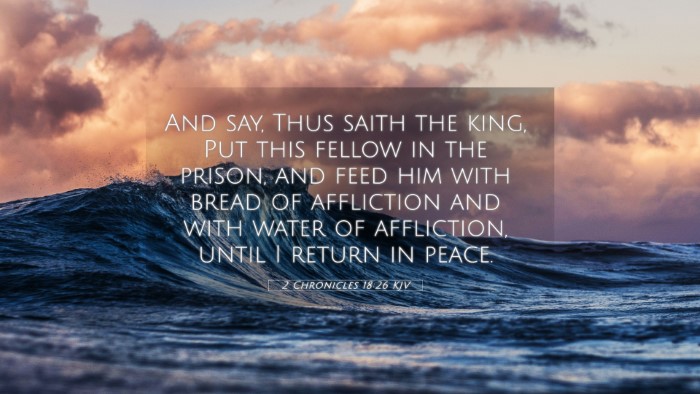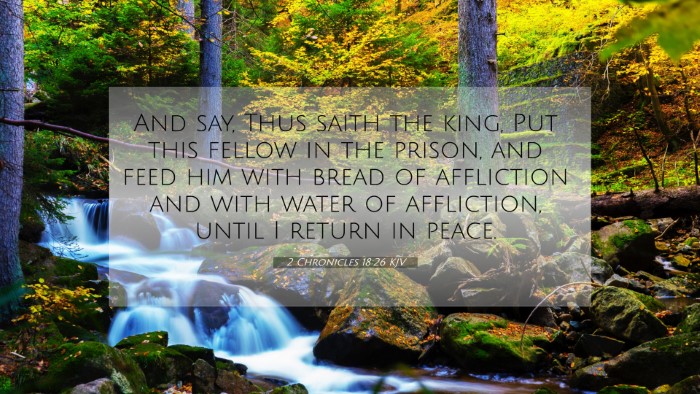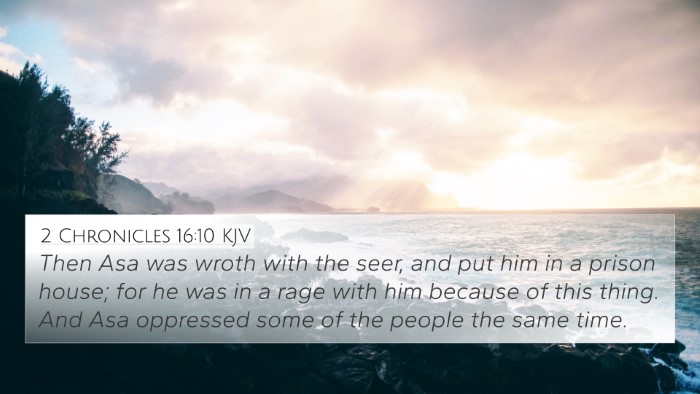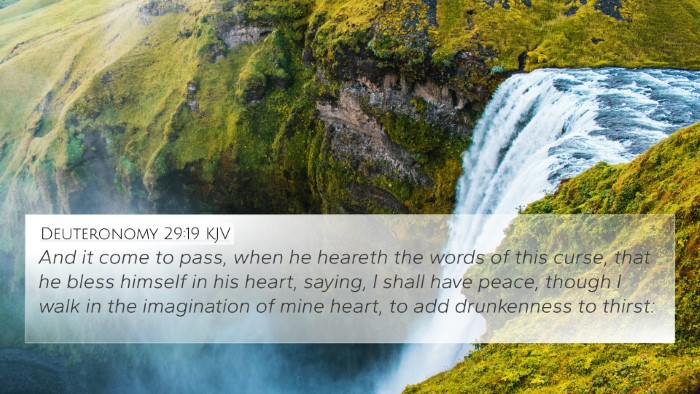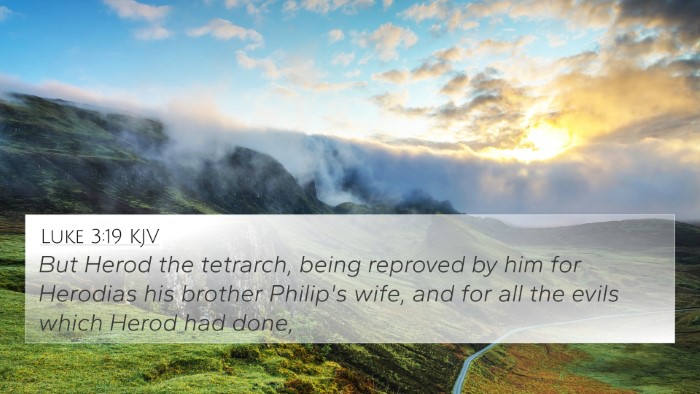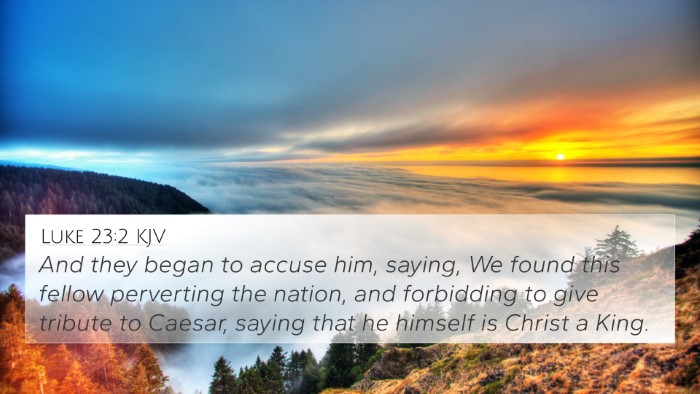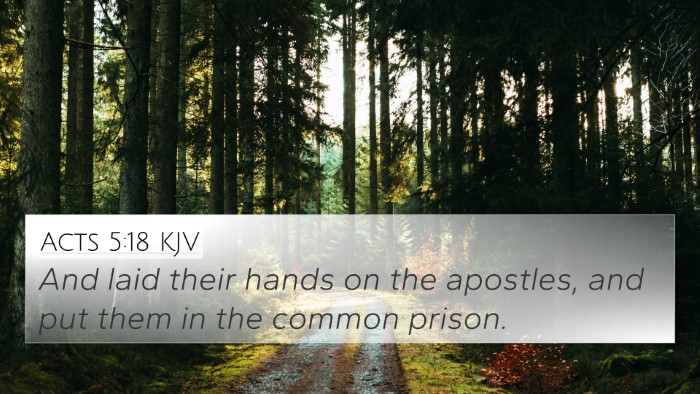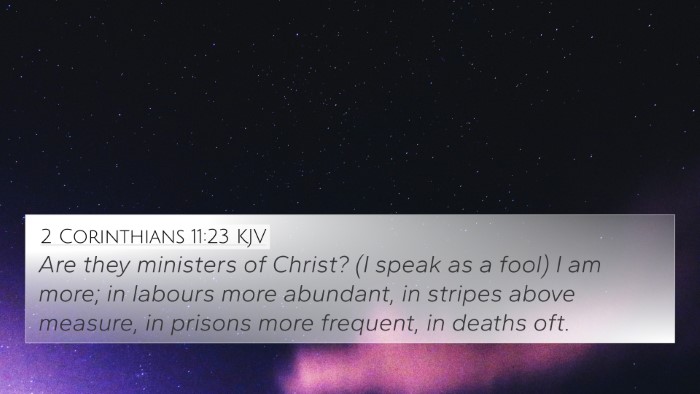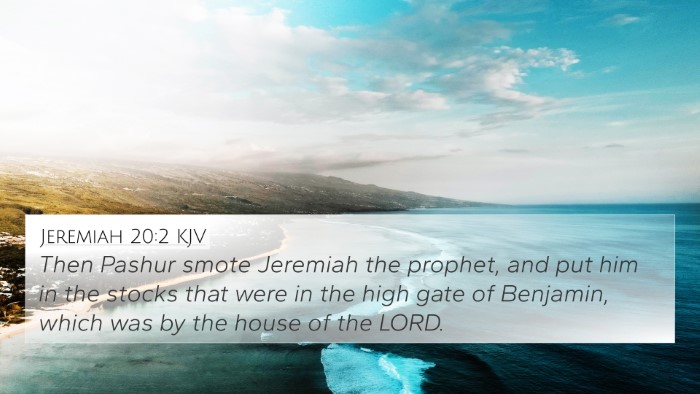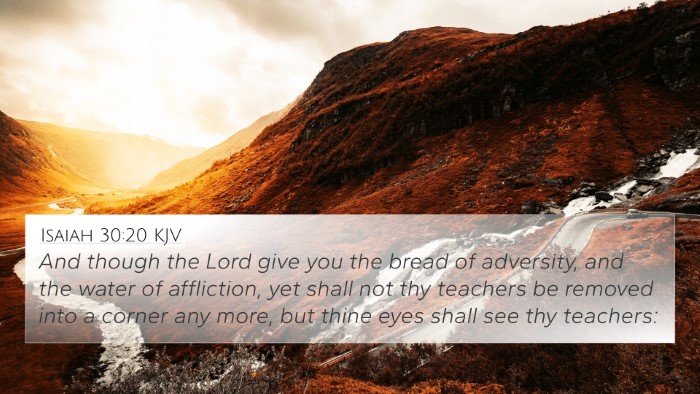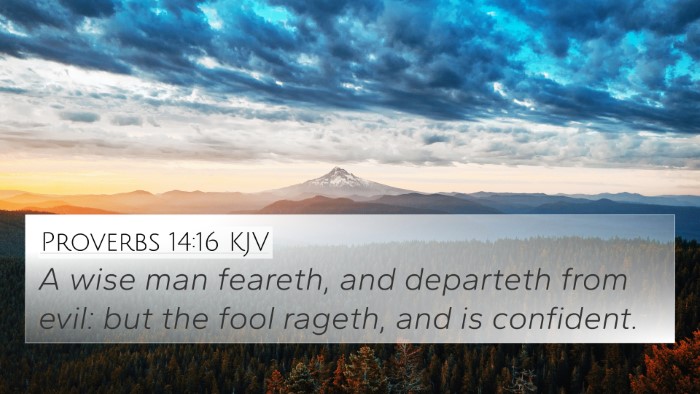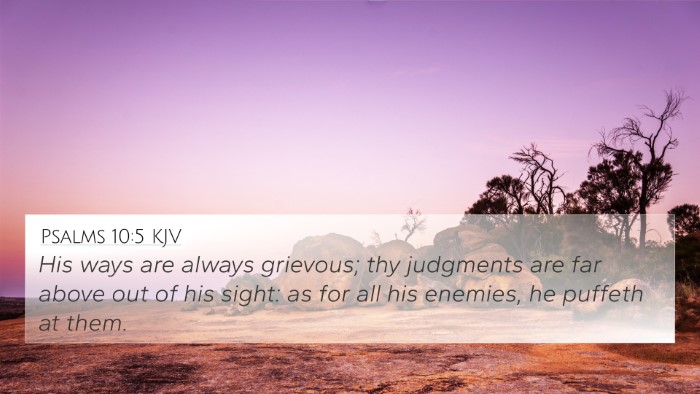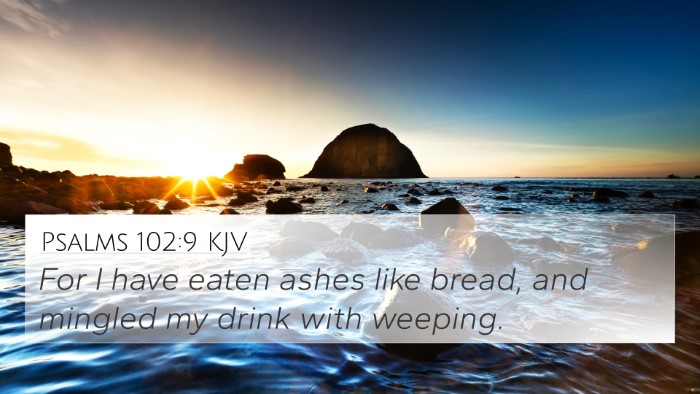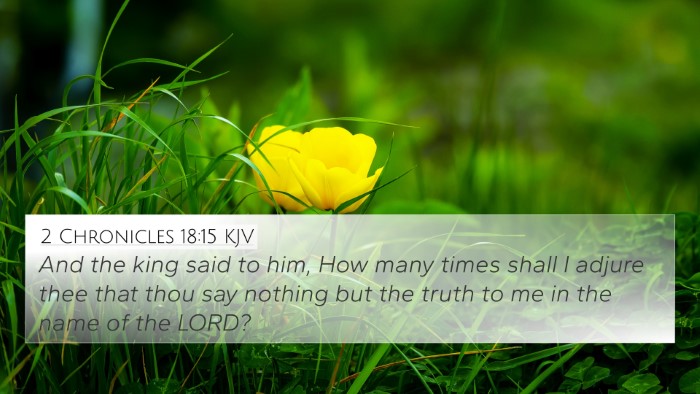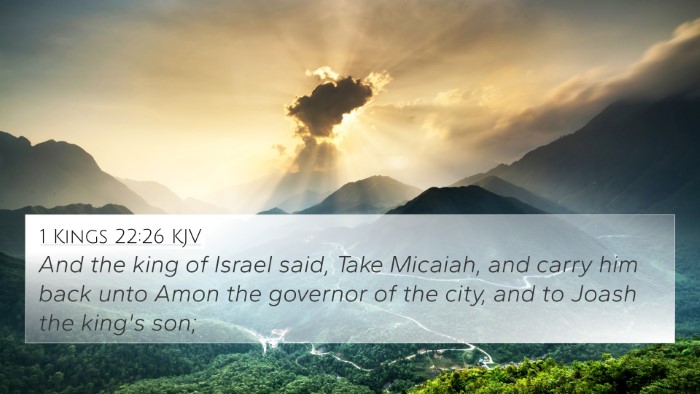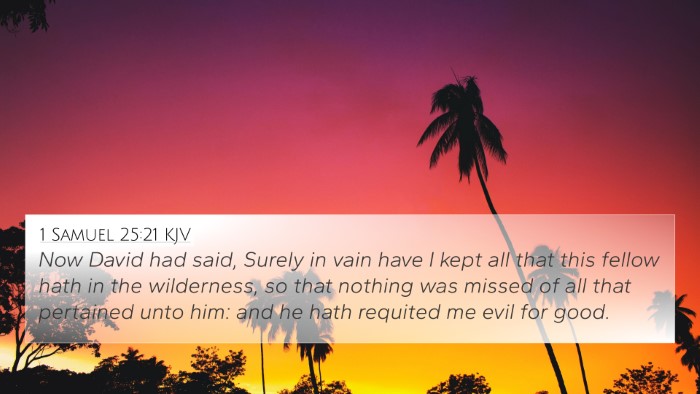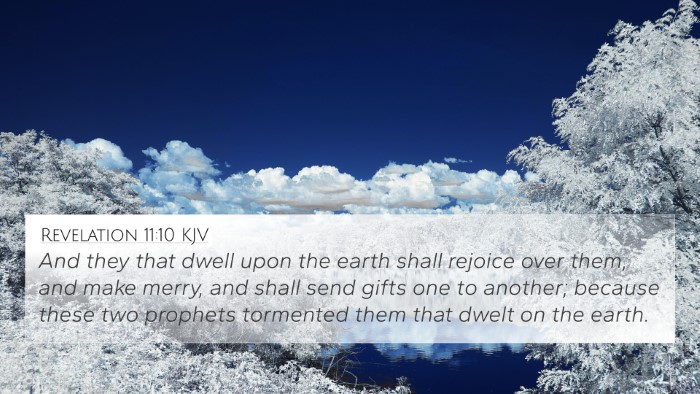Understanding 2 Chronicles 18:26
Verse: "And say, Thus saith the king, Put this fellow in the prison, and feed him with bread of affliction and with water of affliction, until I return in peace." - 2 Chronicles 18:26 (KJV)
Overview of the Context
This verse occurs in a narrative that highlights the conflict between the true prophets of God and the false prophets. In this particular instance, the king of Israel, Ahab, seeks counsel regarding a military endeavor and refuses to heed the warning given by the prophet Micaiah, leading to dire consequences.
Commentary Insights
Matthew Henry’s Commentary
Matthew Henry emphasizes the consequences of rejecting God's truth. He interprets Ahab's treatment of Micaiah as indicative of his corruption, revealing how those in authority often oppress prophetic voices that challenge them. Henry notes that imprisonment and affliction were typical methods used by despots to silence opposition, highlighting the spiritual blindness that led Ahab to this action.
Albert Barnes’ Notes
Albert Barnes explains that the "bread of affliction" symbolizes the minimal sustenance provided under duress. He suggests that this punishment reflects both Ahab's intent to suppress the truth and the nature of false leadership, which seeks to control and manipulate. Barnes further connects this context to the broader theme of how true prophets often face opposition from those in power.
Adam Clarke’s Commentary
Adam Clarke provides historical context, noting that such actions were not only personal vendettas but also political expedients. He elaborates on the implications of Micaiah’s statements about the state of Ahab's kingdom and how this verse illustrates the broader struggle between good and evil leadership. Clarke also remarks on the symbolic significance of the “water of affliction” representing hardships that the faithful endure.
Key Themes
- Opposition to God's Word: The verse encapsulates the peril prophets face when their messages are unwelcome.
- Consequences of Leadership: Ahab's decision to imprison Micaiah underscores the abuse of power and the lengths leaders will go to maintain their agenda.
- Affliction of the Righteous: The imagery of suffering highlights the trials that come with fidelity to God’s word.
Related Bible Cross-References
- 1 Kings 22:26-27 - A parallel narrative regarding Micaiah's imprisonment with similar language used by Ahab.
- Jeremiah 20:2 - Jeremiah's persecution by a king illustrates the historical plight of true prophets.
- Matthew 5:10-12 - Jesus’ teaching on the blessedness of those persecuted for righteousness mirrors Micaiah's experience.
- Acts 7:52 - Stephen recalls the treatment of prophets by leaders, drawing a connection to prophetic rejection.
- Luke 6:22-23 - A refrain on the blessings that follow persecution echoes the theme of faithful suffering.
- Proverbs 29:12 - Highlights the destructive nature of wicked leaders who suppress the truth.
- Revelation 11:10 - Remarks on the fate of God's prophets in the end times, linking to ongoing opposition.
Applications for Today
The lesson from 2 Chronicles 18:26 is critical in today's world. Believers are reminded of the importance of standing firm in faith despite opposition or persecution. The verse also serves as a warning against leadership that silences truth for personal gain. It encourages vigilance and support for those who bear God’s message, especially when it comes under attack.
Conclusion
2 Chronicles 18:26 presents a vivid reminder of the cost of loyalty to God's truth. By cross-referencing related scriptures, we see a thematic unity throughout the Bible regarding the struggles of prophets and the nature of authority. This interconnectedness enhances our understanding of scripture and encourages deeper engagement with the Word.
Further Study
To explore deeper, consider using tools for Bible cross-referencing such as a Bible concordance or a cross-reference Bible study guide to uncover more connections between scriptures, illuminating the rich tapestry of God's message through the ages.
